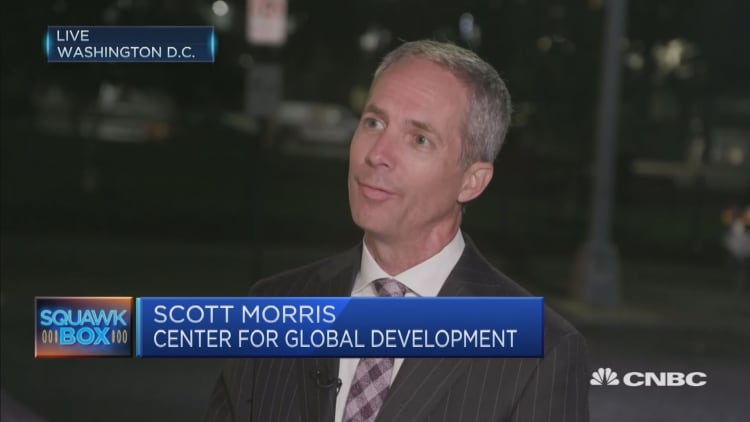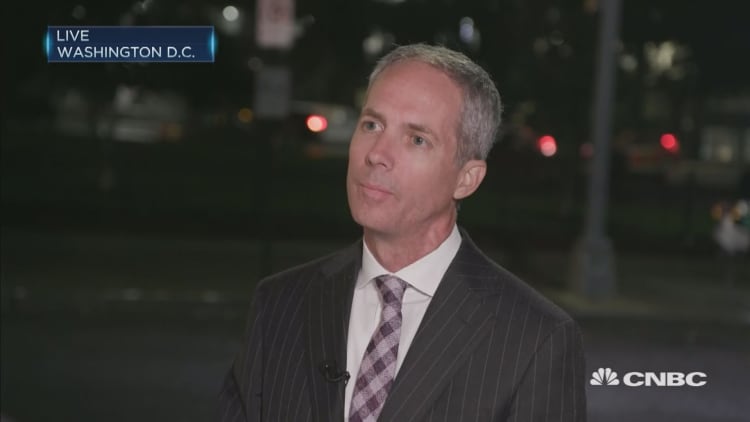
President Donald Trump's "America First" stance is making the U.S. more isolated on the world stage, with the country quickly losing soft power to China, a former U.S. Treasury official told CNBC Thursday.
That shift is readily apparent at this week's annual meetings of the World Bank and the International Monetary Fund in Washington, according to Scott Morris, who oversaw U.S. global development policy and worked with the World Bank while in the Treasury Department during the Obama administration.
"You have a China that is looking to showcase its multi-trillion dollar 'Belt-Road' initiative with very high-profile events and then you have American officials who want to say no to everything: No to ambition at the World Bank, no to trade agreements," Morris told CNBC's "Squawk Box."
"That's a message that is a hard sell to the rest of the international community," he added.
The meetings of the IMF and the World Bank — two multilateral institutions that support global financial stability and offer development assistance, respectively — come as Trump indicated again Wednesday he might exit the North American Free Trade Agreement.
Morris, who is currently a senior fellow at the Center for Global Development, a think tank, said the administration's varying messages on international relationships were "troubling" and he expressed concern about how it could impact U.S. influence, particularly through the World Bank and IMF.
"The stark departure here is a message from this White House saying you should stop lending to a wide swathe of countries and really begin to wind things down," Morris said. "I think that's just not where the rest of the world is and, as a result, the U.S. is increasingly isolated."
His comments followed a Wednesday report by AidData that China could overtake the U.S. as the world's primary donor of foreign aid to most of the developing world. Trump has called for significant reductions in aid, prompting international concern and intense criticism from former White House officials and business executives.

"'America First' is really America retrenchment from what we're seeing. It is this administration seeking to pull away from multilateral agreements, multilateral institutions. It is damaging. I think, first and foremost, it is damaging for the United States," said Morris.
Other than the U.S. growing increasingly isolated on the global stage, Morris said, Trump's protectionism could also hurt multilateral institutions such as the World Bank and the IMF.
"The damage to the institutions is that the Chinese lead a group of other member countries to other venues. We have the Asian Infrastructure Investment Bank as sort of the leading example of that," he said.
"So it's not clear to me that China will own the Washington institutions. I think the U.S. will continue to exert control, but they will do so not from the position of ambition and a proactive agenda, but really to seek to limit the scope of the institutions. I think that's where we risk a large departure in terms of interests from other countries," he added.
The AIIB, which began operation at the beginning of last year, was launched by China as a new multilateral lender for building infrastructure across Asia.
The new institution, which has said it expects to have 85 members by the end of this year, can both complement and compete with the World Bank.
— CNBC's Sam Meredith contributed to this report.
Correction: This story has been updated to reflect that China could be set to usurp the U.S. as the leading donor of foreign aid throughout much of the developing world.

